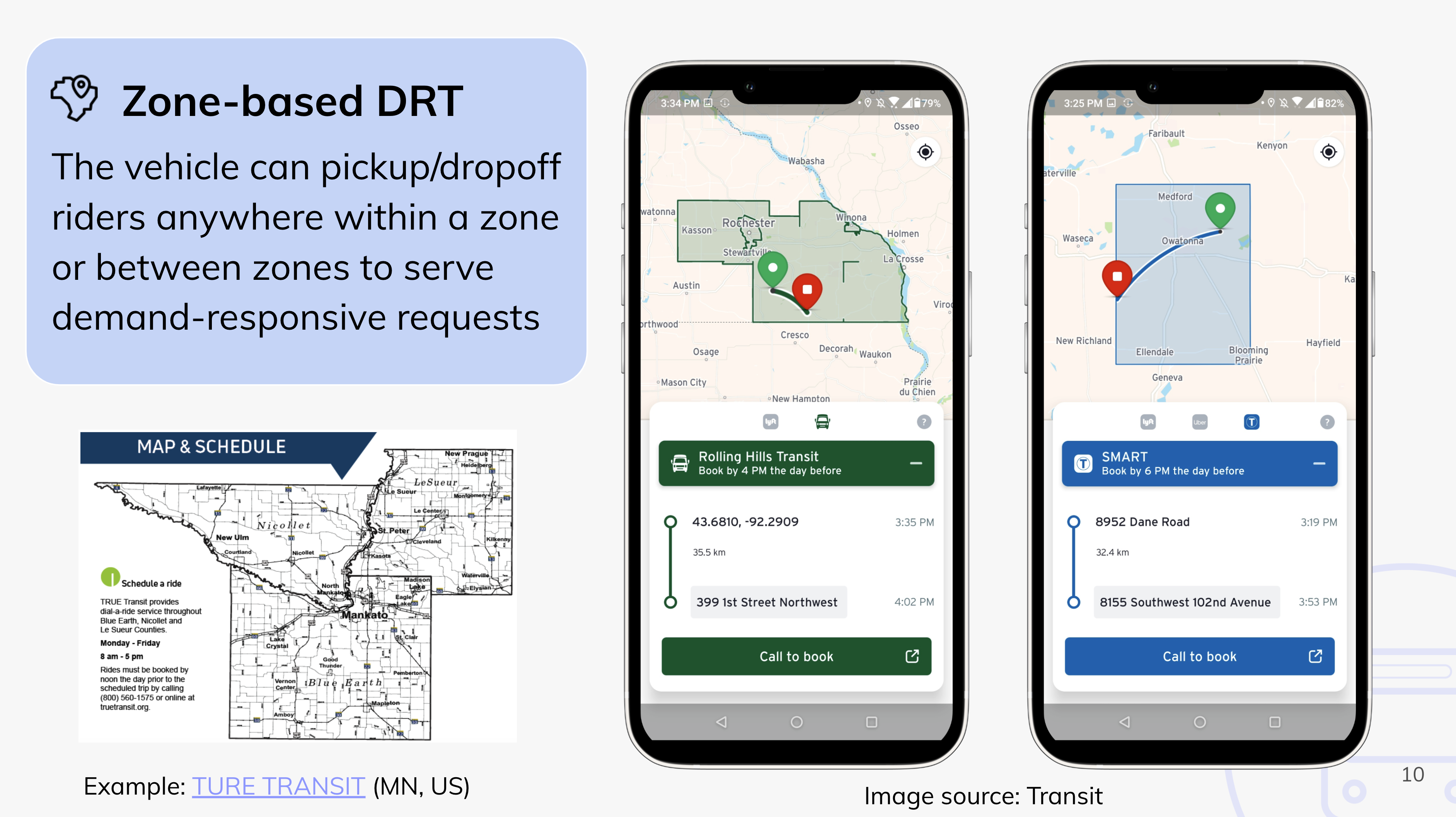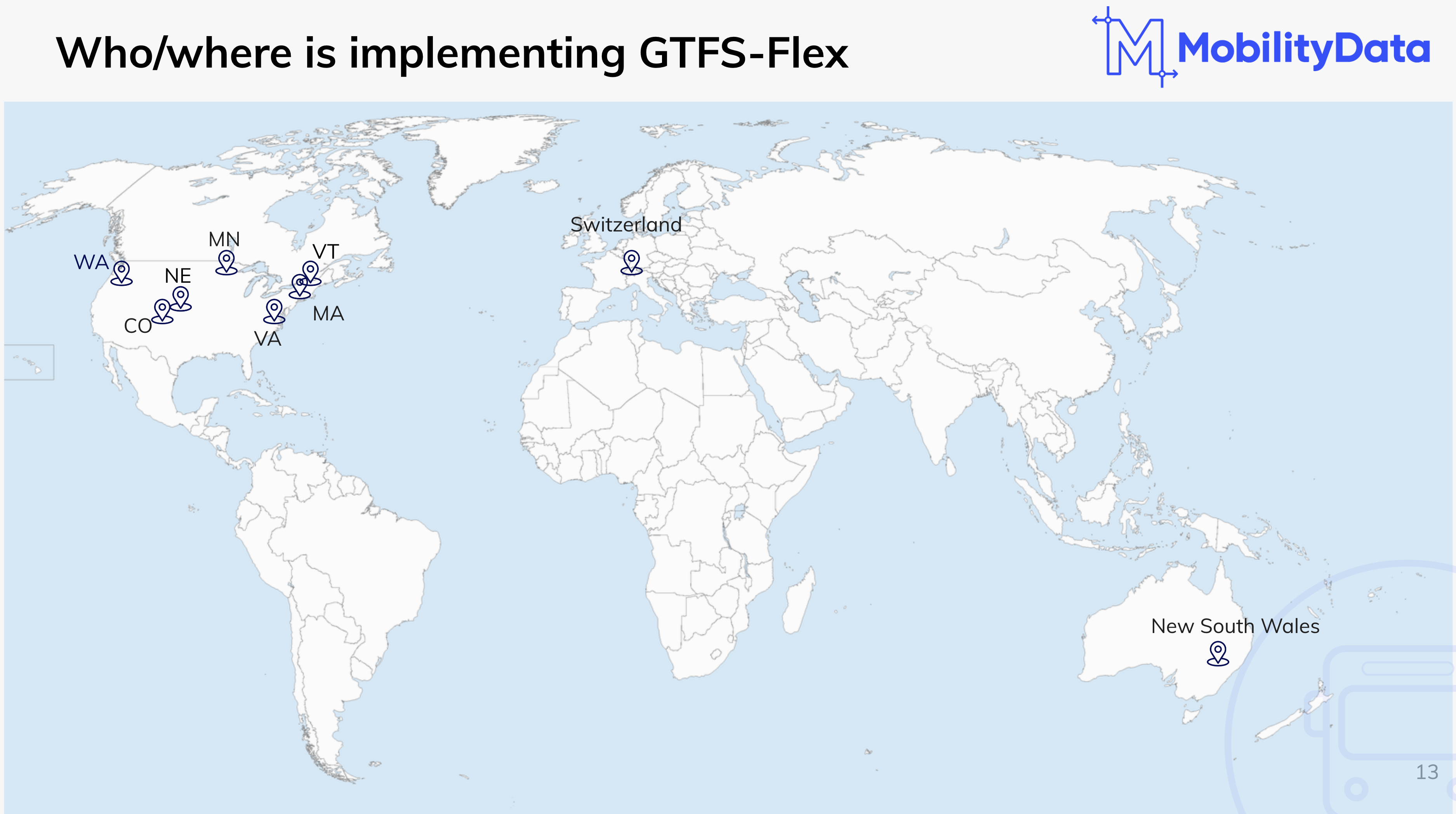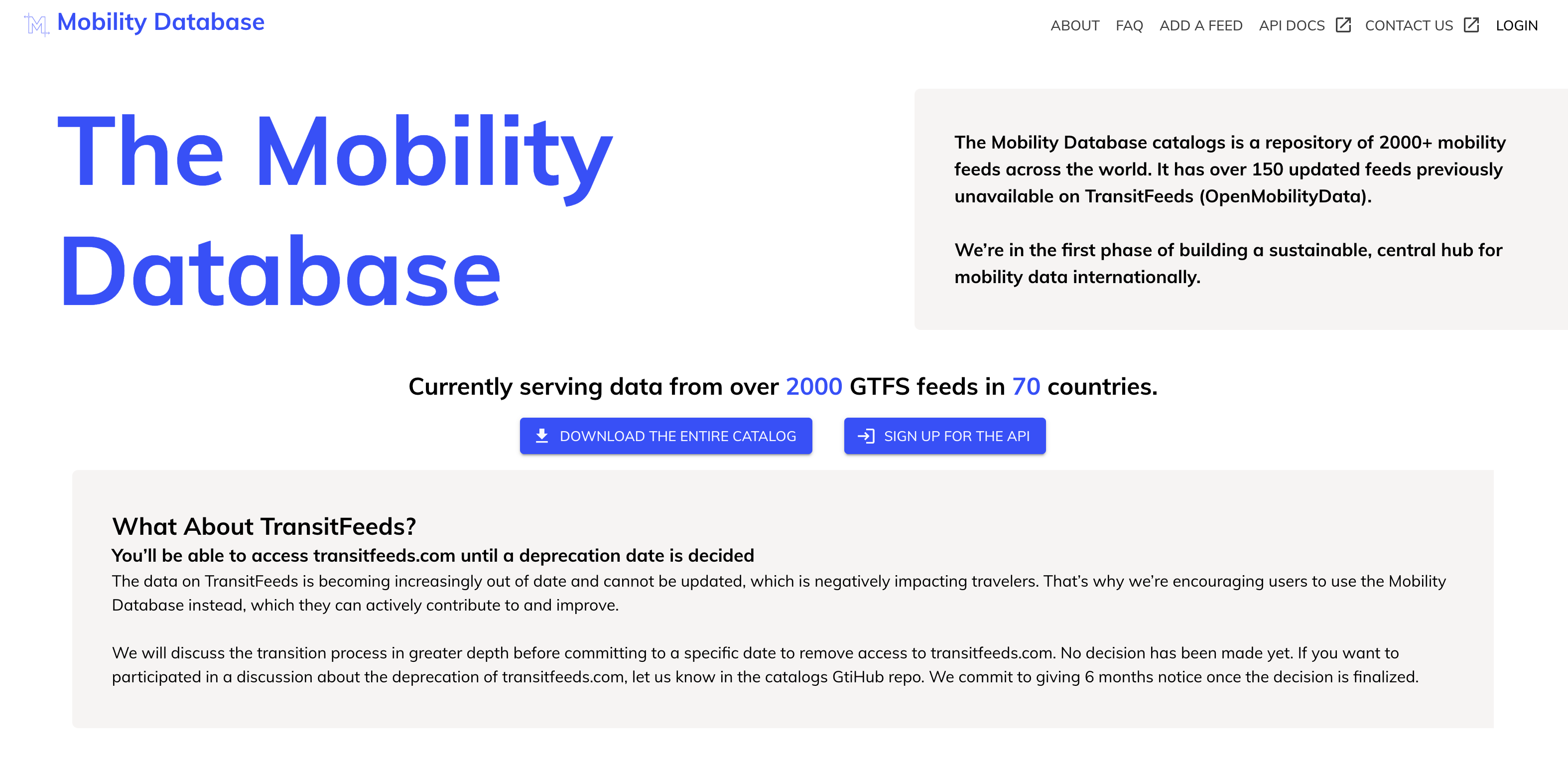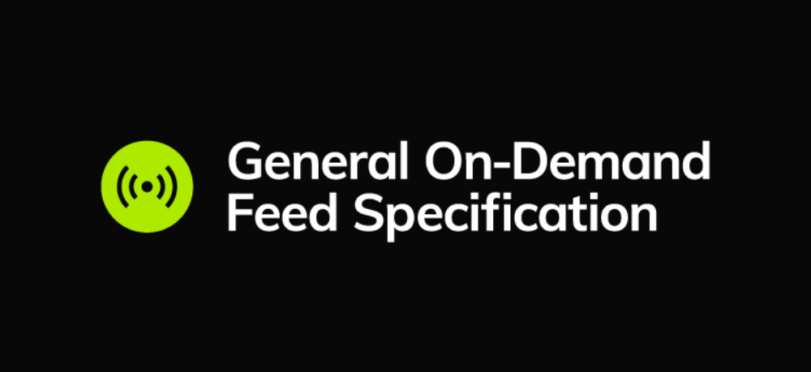5 Key Takeaways from the GTFS-Flex Event
Missed the “GTFS-Flex Is Adopted, Now Let’s Implement It” webinar? We have you covered.
Introduction
Earlier this year, after 11 years of development, including a major push last year, we were proud to announce that GTFS-Flex had been officially adopted into the GTFS specification. GTFS-Flex received 18 votes in favour of adoption which was the most votes in GTFS history!
With Flex officially adopted, we wanted to help put Flex into action, so on June 4th we hosted a public event “GTFS-Flex Is Adopted, Now Let’s Implement It”. Building off the momentum from the vote, this event became the most attended event in the history of MobilityData with 215 attendees from all over the world. If you missed it, don’t worry. We’re here to give you the five key takeaways from the event!
Do you want access to the video of the meeting? Become a MobilityData member and gain access to our entire content library, organizational voting rights, access to members only events, and much more!
Now, let’s jump into the key takeaways.
1: GTFS-Flex Solves a Huge Need
Before GTFS-Flex, there was a big problem when it came to demand responsive transit (DRT). Namely, DRT worked only in standalone apps, websites, and services, and because of that, riders were not aware of DRT options that were available to them.
The goal with GTFS-Flex is to ensure that riders are able to discover DRT services through trip planners and that trip planners can provide integrated routing options for both fixed-route and DRT services. In other words, better transportation through data!
GTFS-Flex use cases include:
- Zone-based DRT
- Fixed-stops DRT
- Predefined Routes with Deviations
Here’s an example of zone-based DRT from our presentation:

2: Interest in GTFS-Flex is Massive
GTFS-Flex has been setting all kinds of records. Not only was the vote for Flex the largest in the history of GTFS, this meeting set another record for total attendance as well! With a record number of RSVPs for the event, we had a total of 215 people join throughout the meeting! Attendees were from all over the world, including Japan, Australia, Cyprus, South Africa, Morocco, Argentina, Chile, Switzerland, Poland, Germany, Spain, France, Norway, and Belgium, where the time difference meant that it was very late for those attendees.
All of this just demonstrates how important GTFS-Flex is to the community and how important it is to make transit options more accessible than ever!
3: The Mobility Data Community is Thriving & Supportive
During the process to get GTFS-Flex officially adopted, the community was thriving from the collaboration, and this was also demonstrated in our meeting. In particular, during the Q&A session, it wasn’t just the MobilityData team providing answers. Discussions were happening in the chat, and other attendees were raising their hand to offer answers to questions submitted by other members of the community.
Because the MobilityData community is global and covers a range of different members, chances are that an issue you are facing has already been experienced by someone else. We were incredibly encouraged to see other meeting attendees helping each other solve their specific issues. This is also a core part of the mission at MobilityData; to bring the mobility community together. By being part of this community of organizations from all over the world, you are able to connect with your peers in the space to collaborate on different things you’re experiencing in addition to other things like spec development.
If you haven’t already, make sure to join the community Slack channel to connect with industry colleagues and peers!
4: GTFS-Flex is Already Being Implemented
That’s right, GTFS-Flex is already being implemented in various parts of the world! Different regions in the USA, Switzerland, and Australia have already started using GTFS-Flex.

A key part of the process is finding willing participants to be first adopters and we want to acknowledge Trillium, Transit, and OpenTripPlanner for being the first adopters of GTFS-Flex!
Since then though, many others have started to implement GTFS-Flex including:
- Transport for NSW (AU)
- Federal Office of Transportation in Switzerland/SBB (CH)
- Minnesota Department of Transportation (US)
- Washington State Department of Transportation (US)
- Colorado Department of Transportation (US)
- Massachusetts Department of Transportation (US)
- Virginia Department of Rail and Public Transportation (US)
- Nebraska Department of Transportation (US)
- Vermont Agency of Transportation (US)
- Arcadis*
- MENTZ GmbH*
- Spare Labs*
*According to our adoption tracker.
5: You Can Start Implementing GTFS-Flex Now!
That’s right, the time to implement is now! We would love to add your organization to the list above and we’re here to help you with that.
We have a wealth of free resources to help you with implementing GTFS-Flex on GTFS.org including:
There is also the Awesome-transit list which is filled with free tools to help with implementing GTFS.
Additionally, be sure to check out the the Mobility Database and add your dataset to the database if you haven’t already!
Finally, the MobilityData team is working on updating the Canonical GTFS Schedule Validator to be able to validate GTFS-Flex data. There’s still time to contribute to this tool, so make sure to check out the rules proposal here!
Conclusion
So there you have it! Those are five key takeaways from the GTFS-Flex webinar. The community is collaborating and thriving, the interest in GTFS-Flex is setting records, and the opportunities that are now available with GTFS-Flex means that transportation options are more accessible to people wherever they are or wherever they need to go.
If you missed this event and don’t want to miss the next one, join our Slack channel and follow us on LinkedIn.
Join us in shaping the future of mobility and buy your ticket to the 2024 International Mobility Data Summit happening on October 30-31 in Montreal!
To keep up with the latest information on GTFS, make sure to subscribe to the GTFS Digest.
Finally, please consider becoming a MobilityData Member to take advantage of our member’s benefits and support the important work that MobilityData does to provide better transportation through data!




